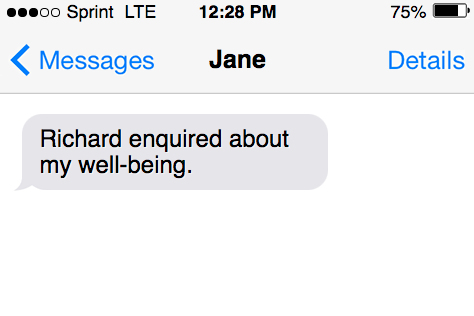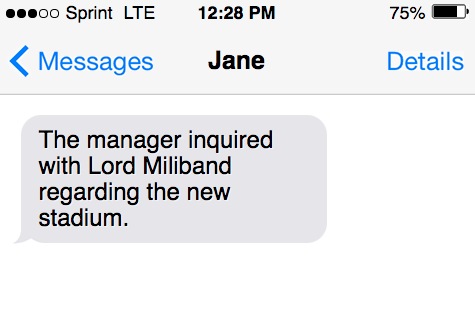What is the difference between enquire vs. inquire? Both the verbs enquire and inquire derive from the Latin word “quaere“, meaning “to seek or ask.” Though they have pretty similar meanings, pronunciations, and origins, enquire vs. inquire are not often interchangeable.
Definition of “Enquire”
Enquire is a verb that means having a desire or wish to know or find out something.
When someone is enquiring about an issue or something, essentially, they are asking questions in general/informal fashion. Enquiring can be used in many formats. On certain occasions, you enquire about time or how long the travel time. Enquire, and the related noun enquiry are more commonly used in British English than in American English.
| Word | Definition |
| Enquire (verb) /inˈkwīr/ | ask for information from someone. |
Definition of “Inquire”
Inquire is a form of process with the goal of resolving doubt, augmenting knowledge, or solving an issue. When you wish to find distinguishing factors between enquire vs inquire, you need to know their individual definitions first.
| Word | Definition |
| Inquire (verb) /inˈkwīr/ | ask for information from someone. |
Inquire is a more in-depth interrogation or questioning by way of deep diving into finding out information formally. It is often used in legal terms to investigate matters related to police investigations, public interest issues, and confidential matters. It is more often used in American English rather than in British English.

When to use “Inquire”
To inquire means to investigate or deep dive to find out the answers. It is very similar to enquire but is usually more in depth and formal as against using enquire.
Inquire is widely used in American English, it means “to investigate” or “to question”. In British English, the word inquire is traditionally used in raising formal queries.
Globally, inquire is used more commonly than enquire. This makes it a preferred option while speaking or writing in legal or official investigative terms. While using enquire vs inquire, you should know the purpose of use of each word to know the differences.

Sentence examples
You must use inquire when seeking detailed and formal answers to questions.
- The police officer inquired about our alibi on the night of the murder.
- My office has inquired on the available dates for a meeting with the Prime Minister.
- The manager inquired with Lord Miliband regarding the new stadium.
- The government is going to open an inquiry related to this matter.
- Mike wanted to inquire about his travel schedule with his assistant.
When to use “Enquire”
Enquire is more like seeing answers to a question. So it is used more in the casual or informal sense. Enquire was used from the 14th century much before words having the prefix “en” were replaced with “in.”
Until the beginning of the 20th Century, enquiry was often used by the British as a synonym in matters related to investigations. Though not incorrect, inquiry is now used as a replacement in formal communication.
Many American writers and readers may not be using the word enquire, but it is more widely used in the United Kingdom than the more similar-sounding word inquire.
Sentence Examples
Use enquire while asking an informal question that does not entail or involve an in-depth answer.
- Richard enquired about my well-being.
- I want to enquire about the flight schedule.
- Where can I enquire about the next available bus going to the town of Vienna?
- Joseph was enquiring about your mother’s health.
- If you lose your way to the zoo, visit the enquiries center and get a map.
Inquiry vs. enquiry (differences)
Verbs enquire or inquiry are synonyms used in place of verbs investigate or ask. In American English you must use inquire in all your communications. However, in British English word inquire is used in formal or legal context and enquire in more informal manner or general questioning. However, enquiry is used more worldwide (except in America) than inquire. In terms of use between enquire vs inquire, it is important to know which is used in what contexts more.
Both these words indicate a focused quest for information rather than the action of seeking the same. Enquiry or inquiry can mean:
- An investigation – information with regard to when the crime was committed or who committed the crime.
- A request seeking information – companies hiring new employees running a background check or police officials looking for criminal records in the database.
- An assessment of scientific principles or fact-checking – such as digging into research queries or looking for answers supporting a hypothesis.
However, you must use enquiry when using it in informal questioning, for example, “I want to enquire about your working hours.” On the other hand, inquiry should be used in formal or investigative communication, for example, “The police are conducting an inquiry about the last night’s break-in at the store.” Most British guides suggest using inquire in formal or investigative communications. Following the British system of language use cannot make you go far wrong while using enquire vs inquire as this is a more acceptable language mechanism.

What is a “Query?”
Query means a “question” and is also derived from the Latin word “quaere“. However, a query is far more limited in scope than inquiry or enquiry. It is mainly limited to a simple yes / no or a shorter answer rather than widening the scope of seeking detailed information. For example:
- William’s office had a query concerning the next available slot for the meeting.
- William’s office approached us to inquire about a prospective employee’s background before hiring.
In the above example, the query will result in a short answer such as “the next available slot is tomorrow” or “the next available slot is after 3 hours”. But the inquiry request regarding background checks will entail detailed information.
Inside this article
Fact checked:
Content is rigorously reviewed by a team of qualified and experienced fact checkers. Fact checkers review articles for factual accuracy, relevance, and timeliness. Learn more.
Core lessons
Glossary
- Abstract Noun
- Accusative Case
- Anecdote
- Antonym
- Active Sentence
- Adverb
- Adjective
- Allegory
- Alliteration
- Adjective Clause
- Adjective Phrase
- Ampersand
- Anastrophe
- Adverbial Clause
- Appositive Phrase
- Clause
- Compound Adjective
- Complex Sentence
- Compound Words
- Compound Predicate
- Common Noun
- Comparative Adjective
- Comparative and Superlative
- Compound Noun
- Compound Subject
- Compound Sentence
- Copular Verb
- Collective Noun
- Colloquialism
- Conciseness
- Consonance
- Conditional
- Concrete Noun
- Conjunction
- Conjugation
- Conditional Sentence
- Comma Splice
- Correlative Conjunction
- Coordinating Conjunction
- Coordinate Adjective
- Cumulative Adjective
- Dative Case
- Determiner
- Declarative Sentence
- Declarative Statement
- Direct Object Pronoun
- Direct Object
- Diction
- Diphthong
- Dangling Modifier
- Demonstrative Pronoun
- Demonstrative Adjective
- Direct Characterization
- Definite Article
- Doublespeak
- False Dilemma Fallacy
- Future Perfect Progressive
- Future Simple
- Future Perfect Continuous
- Future Perfect
- First Conditional
- Irregular Adjective
- Irregular Verb
- Imperative Sentence
- Indefinite Article
- Intransitive Verb
- Introductory Phrase
- Indefinite Pronoun
- Indirect Characterization
- Interrogative Sentence
- Intensive Pronoun
- Inanimate Object
- Indefinite Tense
- Infinitive Phrase
- Interjection
- Intensifier
- Infinitive
- Indicative Mood
- Participle
- Parallelism
- Prepositional Phrase
- Past Simple Tense
- Past Continuous Tense
- Past Perfect Tense
- Past Progressive Tense
- Present Simple Tense
- Present Perfect Tense
- Personal Pronoun
- Personification
- Persuasive Writing
- Parallel Structure
- Phrasal Verb
- Predicate Adjective
- Predicate Nominative
- Phonetic Language
- Plural Noun
- Punctuation
- Punctuation Marks
- Preposition
- Preposition of Place
- Parts of Speech
- Possessive Adjective
- Possessive Determiner
- Possessive Case
- Possessive Noun
- Proper Adjective
- Proper Noun
- Present Participle
- Prefix
- Predicate



